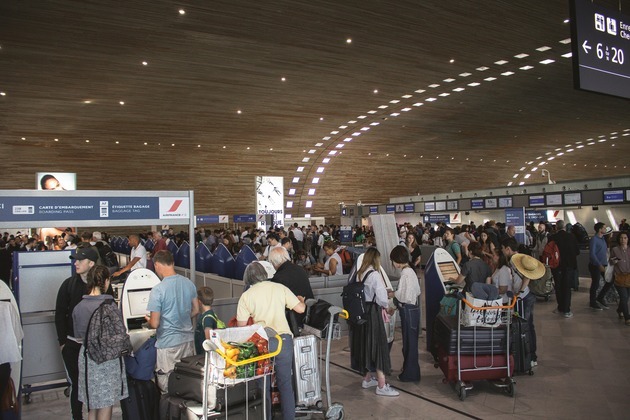Move FM Global News

Brussels cancels half its flights after cyberattack hits check-in
Sep 25, 2025BRUSSELS, Belgium: A cyberattack that crippled check-in systems at several major European airports is still disrupting travel, forcing Brussels Airport to cancel nearly half its departures on September 22 while other hubs work to restore normal operations.
The problems began late on September 19, when airports in Berlin, Brussels, and London reported outages affecting software used for passenger check-in, boarding passes, and baggage handling. The systems, operated by U.S.-based Collins Aerospace, were hit by what the company called a “cyber-related disruption.”
At Brussels, the worst-affected hub, 25 departing flights were canceled the next day and 50 the day after. The airport said that 140 flights scheduled for September 22 were also scrapped because Collins Aerospace “is not yet able to deliver a new secure version of the check-in system.”
The company’s parent, RTX Corp., has not responded to requests for comment, saying the outage could be managed with manual check-ins. Brussels officials said 85 percent of scheduled flights were still operated over the weekend, thanks to extra staffing and the use of self-bag drop and online check-in.
In London and Berlin, operations showed signs of improvement, though passengers still faced delays and long waits. “Due to a systems outage at a service provider, there are longer waiting times,” Berlin Brandenburg Airport said in a notice, advising travelers to use online and self-service kiosks.
The European Commission said air traffic control and aviation safety were unaffected, and investigators had found no sign of a large-scale or severe attack. Experts said hackers, organized crime, or state-backed groups could be responsible, though no culprit has been identified.
Airport staff across Europe were seen reverting to backup systems, handwriting boarding passes, and pulling out laptops to keep passengers moving. Officials advised travelers to check their flight status before leaving for airports and to use alternative check-in methods wherever possible.


